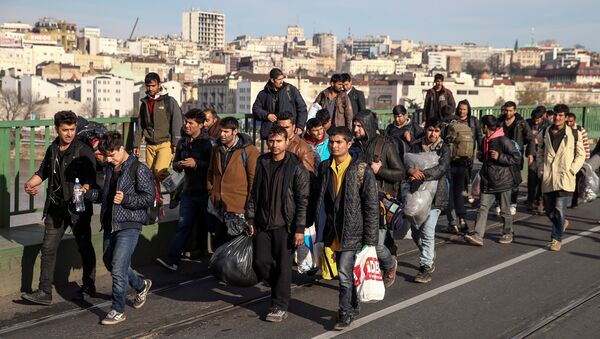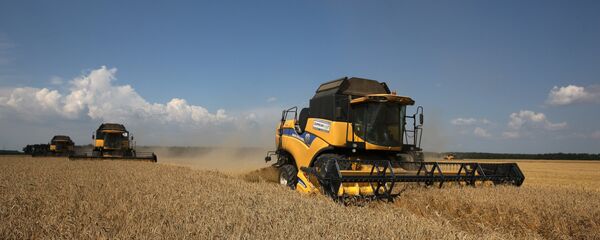“Tighter border controls are not the solution. They have instead resulted in more deaths at sea and more human rights violations. What we need to do to stop the distress migration is to address the root causes behind large movements of migrants and refugees, bringing together humanitarian and development responses. We also need channels for regular migration, facilitating migrants’ integration and contributions to development,” he told RIA Novosti.
He also said that it was necessary to invest in sustainable rural development, climate change adaptation and resilient livelihoods in order to make agriculture a “sustainable and attractive employment option” and to create millions of new jobs.
The FAO director-general pointed out that migration is a part of development and is not a problem itself.
“Migrants can make a positive and profound contribution to the economic and social development of their countries of origin, transit and destination alike. However, it works only if migration is an act of choice and not a desperate last resort,” Graziano da Silva said, referring to a number of conflicts and economic problems that prompt people to leave their homes.
According to Graziano da Silva, the organization actively worked in refugee and internally displaced settings supporting hosting communities to ease tensions and prevent possible outbreaks of violence.
It is necessary to invest in agriculture in order to make it sustainable and subsequently reduce poverty and hunger Jose Graziano da Silva said.
“Investing in agriculture is one of the most effective ways to reduce poverty and hunger. Investments generally induce greater productivity growth and generate incomes in agriculture. This in turn contributes to demand for other rural goods and services and generates demand for people who provide them. Pro-poor investments in agriculture help sustain growth of employment and incomes. So it’s not just the right thing to do, it’s the smart thing to do,” he told RIA Novosti.
Graziano da Silva also said that investments in agriculture could increase availability of food on national and global markets and keep prices low.
“But it is not only about investing in agriculture, it is also about investing in people. We, at FAO, estimate that poverty and hunger could be eradicated by investing in agriculture combined with expansion of social protection programmes to help poor people manage their risks better and improve access to food,” the FAO director-general said.
Graziano da Silva also called for investments aimed at making agriculture more sustainable.
“The sector needs to become more resource-efficient and conserve quality soils, biodiversity, water and forests in order for it to become resilient to the effects of climate change. At the same time, a more adapted and sustainable agriculture can help reduce greenhouse gas emissions generated by current practices of crop cultivation, livestock production, land use and use of forest resources,” he said.
The FAO chief added that more investments in research and development as well as support for farmers especially smallholders would help to achieve more sustainable agricultural practices and natural resource management.



